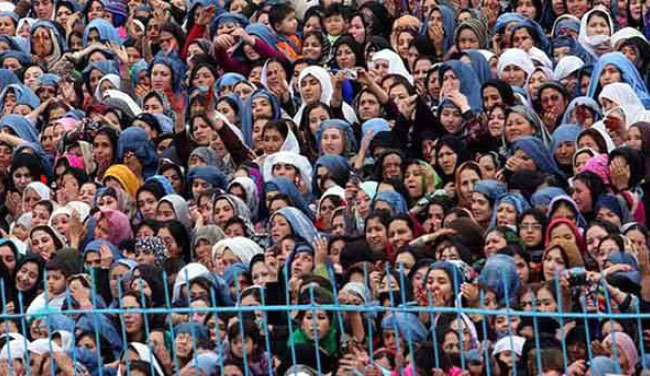In democratic societies, citizens’ political participation plays a pivotal role in a country’s political development. People constitute the main pillars of democratic government which gains its legitimacy from public vote. The greater participation of people will result in building a stronger government.
Public participation in politics does not necessarily mean to flock to ballot boxes, however, citizens are highly responsible in protecting the government and developing the community. This responsibility comes if people are involved in the structure of policy and power. Thus, governments will have to pave the ground for equal participation of citizens and eradicate political, cultural, and economic obstacles impeding their participation.
Similar to other governments, Afghan government is responsible toward the country’s citizens and needs to smooth the path for equal participation of people in all constructive arenas. The question is that what are the practical steps taken by Afghan government and what are the outcomes?
Despite taking step in this regard within the past decade and half, Afghan government is still far from the desired result. For instance, the nation anticipates officials to root out corruption from the government’s machinery, but they are involved in this issue. Despite the disclosure of documents from the embezzlement of some government officials in Western newspapers and domestic media, they are still at large and some have even been promoted. This commentary will discuss women’s share in power and government since their participation was debated hotly in the media within the past sixteen years and millions of dollars were spent for the same purpose. Empowering women was one of the preconditions of Afghanistan’s contributing countries.
Why is women’s political participation important?
Women constitute the half population of a society and play a fundamental role in determining the political destiny of a country. When women form the half population of a society, how can one imagine that half of this body is paralyzed and earns no share in politics or culture? The fact is that lack of women’s political participation in power and government forces men’s hand to expose women to various harms. When women are vulnerable and remain bereft of their fundamental rights, it will put an adverse effect on society and future generation.
In addition to other reasons, disregarding women’s status in Afghanistan was one of the main reasons behind its backwardness. Afghan women were not only marginalized from power, but also deprived of their fundamental rights.
If women of this land were equipped with science and knowledge, Afghan people would not be embroiled in the current fate. An educated mother will teach and train her children and will never allow them to succumb to extremism.
What role do women play in current government?
The National Unity Government (NUG) sought the greater role of women in government’s body, but women still gain lower access to higher positions. For instance, there are only two female ministers in the current administration. To view women’s position and role within the government’s body, it seems that their role is more symbolic rather than real. They are rarely involved in big decisions, which is a matter of great concern for women. Women are appointed as advisers and assistants in ministries and departments, and have less authority. That is to say, government is likely to attract the public attention and satisfaction of contributing countries through appointing women in such positions.
In spite of women’s high abilities and capabilities, they are provided less opportunity. This made some think that women are less qualified for higher positions. But with having chance, women proved their abilities and capabilities.
It is government’s responsibility to provide the ground for women’s participation in different arenas. The government has to bestow them greater role in government.
It is true that Afghan government faces many challenges, but these problems and its involvement in the issue of terrorism should not undermine its will for governance on the basis of meritocracy, regardless of gender.
Will observing the gender issue put meritocracy under question?
A number of individuals believe that there are fewer number of educated and qualified women in the society or they are not qualified enough for key positions. In such a case, the slogan of meritocracy will be trampled upon. In fact, there are many qualified women. Although there are less female cadres, they are not less qualified than men. The level of women’s rationality and thinking is not lower than men, either. For example, there are tens of female MPs in the country who perform their duties with merit. They were neither engaged in corruption. Hence, there is no reason to justify lack of their role in the government.
What is the solution?
To achieve a progressive and stable Afghanistan, we need a full-fledged presence of women and men at all levels. First and foremost, we should examine the factors behind the lack of participation of women in various institutions; then figure out how to facilitate their further participation. The doors of schools and universities should be always open to females and all obstacles before their education must come to an end.
Home » Opinion » Challenges before Women’s Participation in Power and Politics
Challenges before Women’s Participation in Power and Politics
| Abdul Nasir Mowahhidi

